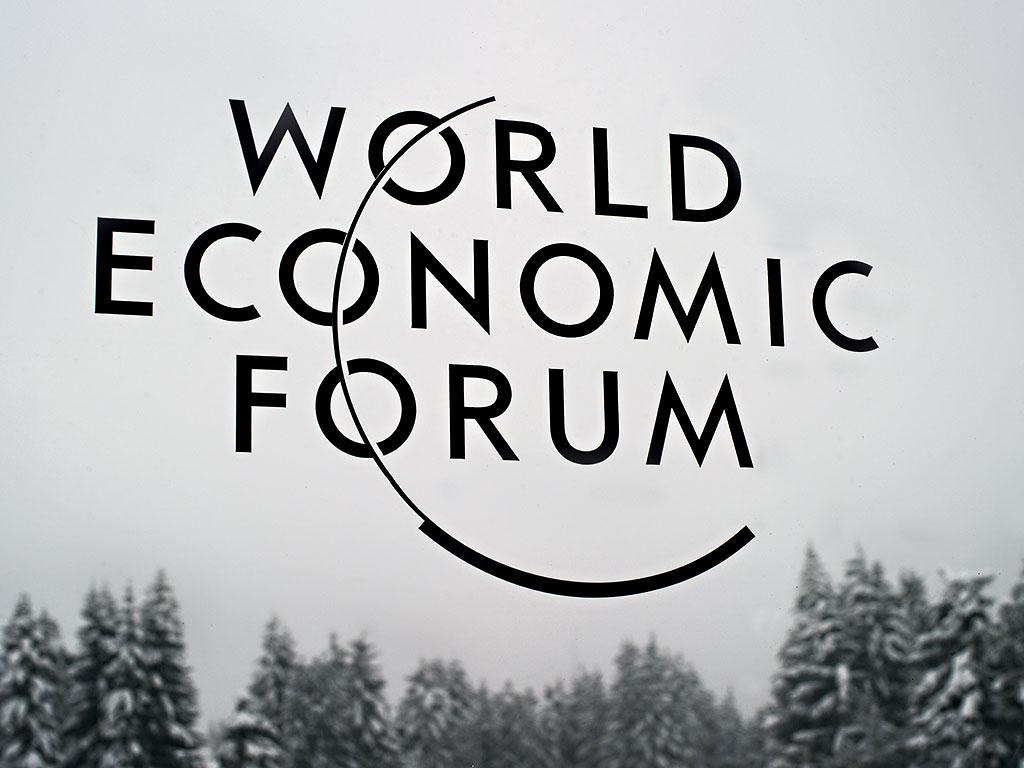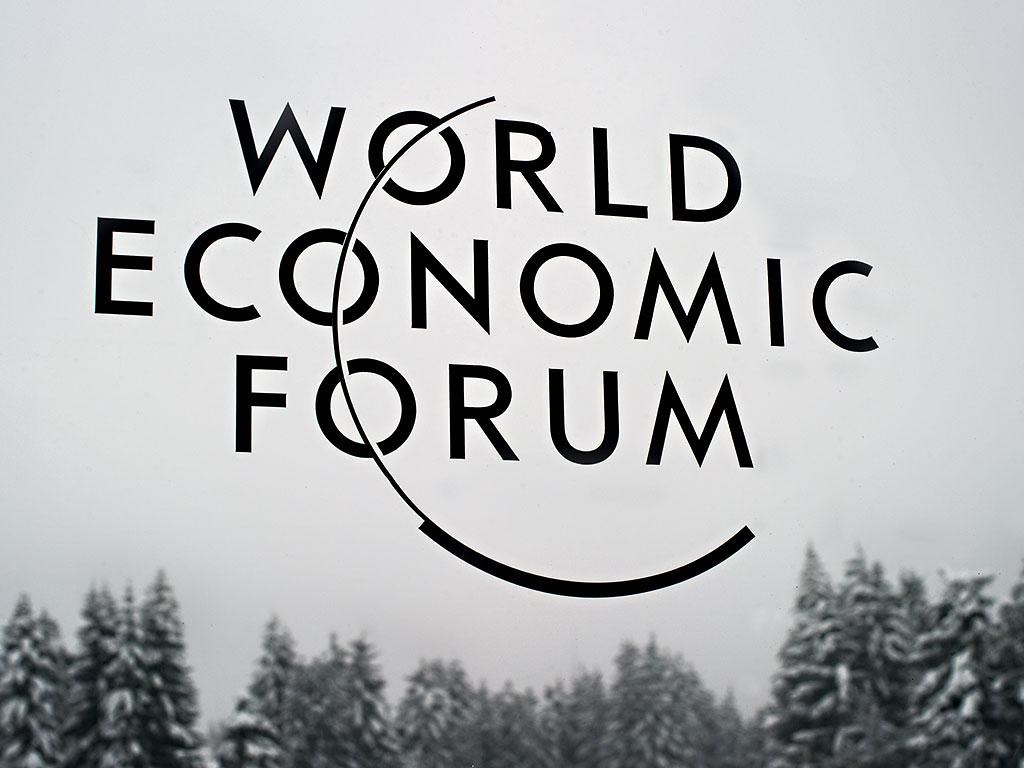環境資訊中心外電;姜唯 翻譯;林大利 審校;稿源:ENS
2020年第50屆世界經濟論壇年會將在1月21日於瑞士達沃斯展開,主題是「團結打造永續世界」(Stakeholders for a Cohesive and Sustainable World),呼籲企業提升氣候行動的積極度。會議為期四天,吸引來自世界各地的3,000多名與會者。
今年的會議將有多位年輕的氣候行動者參與,包括17歲的瑞典環保少女童貝里(Greta Thunberg),盼說服世界各國領導人終結化石燃料經濟。
 2020年第50屆世界經濟論壇年會將在1月21日於瑞士達沃斯展開。照片來源: (CC BY-SA 2.0)
2020年第50屆世界經濟論壇年會將在1月21日於瑞士達沃斯展開。照片來源: (CC BY-SA 2.0)
童貝里等多名行動者1月10日在《衛報》發表評論:「我們要求在今年的論壇上,所有公司、銀行、機構和政府代表立刻停止所有對化石燃料探勘和開採的投資,立刻終止所有化石燃料補貼,並立刻徹底撤資化石燃料,」
「我們要的不是2050年、2030年或是2021年前完成,我們要立刻做,現在馬上做。」
根據2019年熱帶雨林行動網(Rainforest Action Network)、銀行追蹤(BankTrack)、原民環境網絡(Indigenous Environmental Network)、國際石油改革聯盟(Oil Change International)、美國山嶽協會(Sierra Club)和地球榮譽組織(Honor the Earth)共同發表,獲全球160多個組織背書的「」報告,自2015年簽署巴黎氣候協定至今,33家主要跨國銀行總共投資了1.9兆美元於化石燃料,而且過去兩年間,每年的融資額都在增加,其中6000億美元流向了100家最積極擴張的化石燃料公司。
報告顯示,全球主要銀行的商業慣例與政府間氣候變遷專門委員會(IPCC)2018年的全球暖化特別報告形成強烈對比。IPCC的《》描繪出急速淘汰化石燃料的急迫性,並估計到2035年,全球每年對乾淨能源的投資需求為2.4兆美元。
根據國際貨幣基金組織(IMF)的資料,光是在2017年,全世界就花了5.2兆美元在補貼化石燃料,包括煤炭、石油和天然氣。
 美國明尼蘇達州的礦業工廠排放有毒氣體。圖片來源:Tony Webster(CC BY 2.0)
美國明尼蘇達州的礦業工廠排放有毒氣體。圖片來源:Tony Webster(CC BY 2.0)
世界經濟論壇的主辦單位清楚收到環境行動人士的訊息,並且連續第四年讓會議保持氣候中立。
論壇發言人艾爾奇(Aylin Elci)說:「我們竭盡所能減少排放,從材料和資源的使用著手,提供更多當地、當季和植物性飲食;運輸方面,該論壇的汽車和巴士車隊今年有90%為油電或電動車。」
論壇發言人坎恩(Oliver Cann)表示,論壇無法減去的溫室氣體排放,主辦單位透過投資負碳排計畫來抵消。
自2017年起,世界經濟論壇持續計算年會相關碳排,透過資助全球經過認證的排放抵銷計畫來抵消,包括工作人員和與會者搭機的產生的碳排。坎恩說,除了減少碳排放之外,這些措施還創造了就業機會,改善了生活條件。
為了抵消2020年年會的碳排,論壇決定繼續資助兩個關鍵計畫。一是亞馬遜森林砍伐弧線上的「Jacundá」計畫,保護95,000公頃的原始森林並永續生產橡膠、阿薩伊果和巴西堅果。該計畫由社區主導,並在特種巴西保護區中執行,傳統社區在其中有管理資源的權利。
 巴西亞馬遜的「Jacundá」原始森林。圖片來源:
巴西亞馬遜的「Jacundá」原始森林。圖片來源:
第二個計畫是「綠色農場生物燃氣」,利用沼氣池處理產生的甲烷作為能源,殘留物則成為瑞士當地農場的肥料。
此外,論壇還跟瑞士氣候解決方案供應商「南極」公司合作,資助世界各地多個與堆肥、乾淨爐灶、水力和風力發電相關的碳排抵銷計畫:
印度「新德里堆肥」計畫每年將德里水果和蔬菜市場的73,000噸固體廢棄物轉成堆肥。
柬埔寨國家厭氧消化計畫將18,000座農場的廢棄物轉為肥料,也取代了生質爐,自2006年起省下150,000噸的木材。
在馬利,撒哈拉沙漠覆蓋了一半以上的國土。Katene乾淨爐灶計畫在當地的爐具製造工廠創造了400個工作機會,並種植了2400平方公尺的樹木對抗沙漠化。
中國四川省麻咪澤自然保護區中,當地社區砍柴生火煮飯的需求威脅周圍的生物多樣性和大熊貓的棲息地。世界自然基金會的節柴灶推廣計畫正在努力解決這個問題。
永續的水力發電是最有效的發電方式,但建築成本是發展的一大阻礙。 在巴西,Incomex Hydro計畫已經建了三座水力發電廠,生產乾淨能源,每年減少超過83,000噸的二氧化碳,可供應14,000戶住宅電力。
減少排放仍然是世界經濟論壇2020年年會永續發展工作的重點,是其組織永續發展戰略的一部分,目的是透過抵消無法避免的排放,促進瑞士海內外的永續發展。
在2020年年會召開之前,原民環境網執行總監高圖斯(Tom Goldtooth)提醒仍在投資化石燃料的銀行:「這些銀行所投資的未來,將損害未來七代以上子子孫孫的福祉。」
World Economic Forum 2020 Aims for Sustainability DAVOS-KLOSTERS, Switzerland, January 12, 2020 (ENS)
This year’s annual meeting of the World Economic Forum will call on corporations to raise their ambitions for climate action under the theme Stakeholders for a Cohesive and Sustainable World. The meeting’s 50th edition, opening January 21 and running for four days in Davos-Klosters, will bring together over 3,000 participants from throughout the world.
Young climate activists, including Swedish climate activist Greta Thunberg, 17, will be attending the World Economic Forum this year in an effort to convince world leaders to end the fossil fuel economy.
“We demand that at this year’s Forum, participants from all companies, banks, institutions and governments immediately halt all investments in fossil fuel exploration and extraction, immediately end all fossil fuel subsidies and immediately and completely divest from fossil fuels,” wrote Thunberg and other young climate activists in an opinion piece in “The Guardian” newspaper on January 10.
“We don’t want these things done by 2050, 2030 or even 2021, we want this done now – as in right now,” they wrote.
Since the 2015 Paris Agreement on climate, 33 major global banks have collectively poured US$1.9 trillion into fossil fuels, according to a March 2019 report, “Banking on Climate Change” by six nonprofit organizations and endorsed by over 160 organizations around the world.
Released by Rainforest Action Network, BankTrack, Indigenous Environmental Network, Oil Change International, Sierra Club, and Honor the Earth, the report reveals that 33 global banks have provided US$1.9 trillion to fossil fuel companies since the adoption of the Paris climate accord at the end of 2015. The amount of financing has risen in each of the past two years.
Of this total, $600 billion went to 100 companies that are most aggressively expanding fossil fuels. The report shows that the business practices of the world’s major banks stand in contrast to a 2018 special report on global warming by the Intergovernmental Panel on Climate Change (IPCC). That report, “Global Warming of 1.5 °C,” outlined the critical need for a rapid phase-out of fossil fuels and estimated that the world’s clean energy investment needs are $2.4 trillion per year up to 2035.
In 2017 alone, the world spent $5.2 trillion subsidizing fossil fuels – coal, oil and gas – according to the International Monetary Fund.
The organizers of the World Economic Forum have already got the message. For the fourth year in a row, the annual meeting will be climate neutral.
“We do everything we can to reduce emissions in the first place,” said Forum spokeswoman Aylin Elci. This involves looking at the use of materials and resources, the food served – more local, seasonal and plant-based than ever before – and transportation. The Forum’s fleet of cars and buses is 90 percent hybrid or electric this year.
All greenhouse gas emissions that the Forum cannot eliminate, organizers offset by investing in plans that reduce emissions levels in the atmosphere, says Forum spokesman Oliver Cann.
The Forum has been calculating and offsetting all emissions connected with the annual meeting, including staff and participant air travel, by funding certified offsetting projects around the world since 2017. Beyond carbon emission reduction, these initiatives also create jobs and improved living conditions, says Cann.
To offset the 2020 Annual Meeting, the Forum has decided to continue supporting two key projects. The Jacundá project in the Amazonian Arc of Deforestation known for its disappearing tropical forest protects an area of 95,000 hectares of native forest and sustainably produced rubber, açai and brazil nuts. The project is community-led and implemented on a specific Brazilian category of protected areas in which traditional communities own the right to manage the resources.
The second project is Biogas for Greener Farms, which uses methane generated by the processing of manure in biogas digesters as energy and the residue as fertilizer for local farms in Switzerland.
Cann details other offsetting projects supported by the Forum in collaboration with South Pole, a provider of global climate solutions headquartered in Zurich, Switzerland with 17 offices around the world.
Waste Composters
Composting New Dehli ensures that solid waste from fruit and vegetable markets in Delhi, India, does not end up in landfills and transforms 73,000 tonnes of it into compost every year.
In Cambodia, the National Biodigester program not only treats waste then used as fertilizer by over 18,000 farms but also replaces biomass stoves, saving 150,000 tonnes of wood since 2006.
Clean Cookstoves
In Mali, Katene Clean Cookstoves created 400 jobs in a local stove manufacturing factory and planted 2,400m2 of trees to counter desertification in a country that is more than half covered by the Sahara Desert.
Communities gathering firewood in China’s Mamize Nature Reserve in Sichuan province threaten the surrounding biodiversity and the habitat of giant pandas, an issue the WWF Mamize Firewood-Saving Cook Stove Project has been working to address.
Clean Energy – Hydro and Wind Power
Sustainable hydro plants are the most efficient way to generate electricity, but their cost can be a barrier to construction. In Brazil, Incomex Hydro has set up three hydro plants, which produce clean energy and reduce over 83,000 tonnes of CO2 a year – the equivalent of electricity for 14,000 houses.
Reducing emissions remains the first priority of the World Economic Forum’s sustainability efforts for the Annual Meeting 2020, which forms part of its broader institutional sustainability strategy.
The aim is to use offsetting to neutralize the emissions that cannot be avoided, in a way that fosters sustainable development in Switzerland and abroad.
In advance of the 2020 annual meeting, Tom Goldtooth, executive director of the Indigenous Environmental Network, has a message for banks that are funding fossil fuel development. “These banks are funding a future that will cost the well-being of the next seven generations of life and beyond.”
※ 全文及圖片詳見:
作者
如果有一件事是重要的,如果能為孩子實現一個願望,那就是人類與大自然和諧共存。
於特有生物研究保育中心服務,小鳥和棲地是主要的研究對象。是龜毛的讀者,認為龜毛是探索世界的美德。
延伸閱讀
本站聲明:網站內容來源環境資訊中心https://e-info.org.tw/,如有侵權,請聯繫我們,我們將及時處理
【其他文章推薦】
※台北網頁設計公司這麼多,該如何挑選?? 網頁設計報價省錢懶人包"嚨底家"
※網頁設計公司推薦更多不同的設計風格,搶佔消費者視覺第一線
※想知道購買電動車哪裡補助最多?台中電動車補助資訊懶人包彙整
※南投搬家費用,距離,噸數怎麼算?達人教你簡易估價知識!
